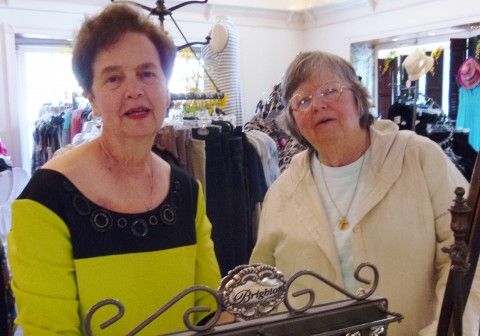Activity Ideas for Dementia
"Nurturing Engagement" offers practical activity ideas for early-stage dementia patients. It covers shopping, exercise, technology, community resources, and caregiver roles. Tailored for cognitive health and emotional well-being, it aims to slow cognitive decline and enhance life quality.

Activities for those in early stages of dementia
Dementia, a condition marked by cognitive decline, presents unique challenges for individuals and their families. Its early stages are particularly crucial for maintaining a sense of normalcy and engagement in daily life. This comprehensive guide explores a variety of activities, including shopping, exercise, and socializing, that can support loved ones with dementia. We emphasize that these activities are not merely recreational but integral to daily living, helping slow cognitive decline and enhance well-being.
Shopping: A Therapeutic Adventure
Shopping stands out as an enjoyable and practical activity, especially for women. It's more than just a task; it's an opportunity to spend time together for social interaction and a breath of fresh air. However, as dementia progresses, the ability to shop independently can diminish. It’s crucial to ensure safe and pleasant shopping experiences:
Accompanied Shopping Trips: Ensure a family member or caregiver accompanies the person with dementia. This reduces anxiety and ensures that the shopping list is followed, preventing unnecessary purchases.
List and Guidance: Short-term memory loss is common in dementia. Providing a clear shopping list can offer structure. For those in the late stage dementia or early stages who can shop alone, this is an essential aid.
Financial Safeguards: Limiting access to large sums of money or credit cards can prevent financial mishaps.
Understanding Impulse Control
Impulse shopping might increase as judgment deteriorates. Be vigilant for unusual purchasing behaviors and gently guide choices. If shoplifting occurs, a discreet explanation of the individual’s condition to the store management can often resolve the situation empathetically.

Beyond Shopping: Engaging Activities for Cognitive Health
Exercise: Regular physical activity, like walking or chair yoga, is essential for maintaining cognitive and physical health.
Socializing: Engaging in social activities, such fun activities such as attending dementia-friendly cinema screenings or visiting a dog park, can boost mood and self-esteem.
Hobbies and Creative Pursuits: Encourage hobbies that align with the person's current abilities, such outdoor activities such as gardening, painting, or engaging with music and photo albums.
Cognitive Stimulation: Activities like crossword puzzles, jigsaw puzzles, and dedicated dementia apps can help maintain cognitive skills.
Sensory Stimulation: Sensory experiences, such as pet therapy or hand massages, can trigger memories, evoke fond memories and provide comfort.
Household Tasks: Involvement of older adults in simple tasks like folding laundry or preparing holiday desserts can provide a sense of accomplishment and normalcy.
Leveraging Technology and Community Resources for Dementia Patients in the Early Stages
In the early stages of dementia, technology and community resources play a critical role in enriching the lives of patients. These tools and programs can be tailored to the specific needs and abilities of individuals, offering a range of meaningful activities, that promote cognitive health, physical well-being, and emotional connection.

Dedicated Dementia Apps
There are numerous apps designed specifically for dementia patients. These apps offer activities that stimulate cognitive skills, such as memory games, puzzles, and problem-solving exercises. They can also include reminiscence therapy features, where patients interact with family photos and listen to favorite holiday songs, triggering fond memories and enhancing their emotional well-being. Some apps even provide easy-to-follow steps for daily tasks and exercises, helping to maintain independence in the early stages of dementia.
Community Resources and Activities
Local communities often have resources and programs tailored for people with dementia. This can include:
Dementia-Friendly Social Events: Events like dementia-friendly cinema screenings or music events are great for social interaction and can be very enjoyable for people with dementia, patients and their family members.
Exercise Programs: Physical activities such as tai chi, chair yoga, or gentle walks in a dog park can be both enjoyable and beneficial for maintaining physical health.
Creative and Engaging Activities: Opportunities to engage in creative activities like painting, play dough sculpting, or participating in holiday craft making can be deeply satisfying.
Educational Workshops: Workshops focused on dementia awareness and coping strategies are invaluable for both patients and caregivers.

Integrating Sensory and Stimulating Activities
Activities that provide sensory stimulation, such as pet therapy, hand massages hand massage, or sensory gardens with a variety of plants and textures, can be soothing and enjoyable for dementia patients. Regular engagement in stimulating activities like jigsaw puzzles, board games, and crossword puzzles helps maintain cognitive skills.
Involvement in Household Tasks
Involving dementia patients in simple household tasks like folding laundry, helping to prepare holiday desserts, or caring for a large fish tank can provide a sense of purpose and accomplishment. These activities should be chosen based on the person's current abilities and interests.
Role of Family Caregivers in Activity Planning
Family caregivers are essential in identifying and facilitating suitable activities. This includes spending quality time with the person with dementia, whether it's going through family photo albums, planning a memory box, or simply enjoying time outdoors for fresh air. They can also work closely with the person's doctor to understand how the dementia is progressing and what activities are most beneficial.
Promoting Well-being and Reducing Harmful Behaviors
By providing meaningful activities and proper stimulation, caregivers can help reduce symptoms of dementia and prevent harmful behaviors. Activities should be designed to improve the overall well-being of the person with dementia, taking into consideration their residual skills and the person is need for emotional connections.
Leveraging technology and community resources provides a diverse range of activity options for people in the early stages of dementia. These activities not only cater to the cognitive and physical needs of patients but also provide emotional support and a sense of belonging, crucial for their overall well-being. Regular engagement in these activities can help slow the progression of dementia symptoms, improve wellbeing, and enhance the quality of life for both patients and their caregivers.
The Indispensable Role of Family Caregivers in Supporting Early Stage Dementia Patients
Family caregivers hold an irreplaceable position in the lives of early-stage dementia patients. Their involvement goes beyond mere assistance; they become architects of a nurturing and stimulating environment tailored to the evolving needs of their loved ones.
Understanding and Adapting to Changing Abilities
One of the primary responsibilities of family caregivers is to closely observe and understand the changing cognitive and physical abilities of the the person living with dementia. This understanding is crucial for adapting activities to suit the person's current abilities and interests. Whether it involves reminiscing over family photo albums, engaging in light physical activities like chair yoga, or playing board games, each activity should align with their capability and provide a sense of accomplishment and joy.
Planning Meaningful and Engaging Activities
Caregivers play a critical role in planning activities that are not only enjoyable but also beneficial for cognitive health and well-being. This might include:
- Dedicated Dementia Apps: Leveraging technology like dementia-friendly apps to help maintain cognitive skills and trigger fond memories.
- Physical Activities: Incorporating regular exercise tailored to the person's physical capabilities, such as walks in a dog park or tai chi, to promote overall well-being.
- Creative and Sensory Stimulation: Engaging in creative activities like play dough sculpting or sensory experiences like pet therapy, which can provide both emotional connection and cognitive stimulation.
- Community Involvement: Utilizing local community resources, such as attending dementia-friendly cinema screenings or participating in local events, to maintain social interaction and self-esteem.
Regular Consultation with Health Professionals
Maintaining regular communication with the person's doctor is vital. It ensures that the activities planned are in line with the medical advice and tailored to the person's stage of dementia. The healthcare provider can offer insights into the progression of the disease and suggest suitable activities to manage symptoms and promote cognitive health.
Managing Daily Life and Household Tasks
Family caregivers often assist in daily life activities, ensuring that the routine is manageable and not overwhelming. This might include overseeing household tasks, managing medications, or preparing meals. Engaging the person with dementia in simple tasks like folding laundry or baking holiday desserts can provide them with a sense of purpose and participation in daily life.
Building a Supportive and Safe Environment
Creating a safe and supportive environment is a key aspect of caregiving. This includes minimizing risks of harmful behaviors, providing emotional support, and ensuring the living space is dementia-friendly. Activities like organizing a memory box, sensory activities, spending time outdoors for fresh air, or simply enjoying quality time together can significantly enhance the person's sense of well-being and belonging.
Family caregivers play a multifaceted role in caring for someone with early-stage dementia. From adapting activities to suit changing abilities, to consulting with healthcare professionals, and providing emotional support, their role is central to the well-being of the person with dementia. By engaging their loved ones in stimulating, meaningful, and enjoyable activities, caregivers can not only help manage the symptoms of dementia but also enrich the quality of life for those they care for.

Fostering a Supportive Environment
The goal is to create a supportive environment that respects the dignity of the individual with dementia. Activities should be tailored to their abilities and preferences, focusing on enhancing their quality of life and well-being. By incorporating a mix of physical, social, and cognitive activities, caregivers can help slow cognitive decline and maintain a sense of connection and purpose in their loved one's life.
Understanding Dementia Behaviors: Tips and Strategies
Our Resource section can help you find the information and tools that you need. We have courses, videos, checklists, guidebooks, cheat sheets, how-to guides and more.
You can get started by clicking on the link below. We know that taking care of a loved one is hard work, but with our help you can get the support that you need.
Click here to go to Resource Section now!
You might also like this article:









